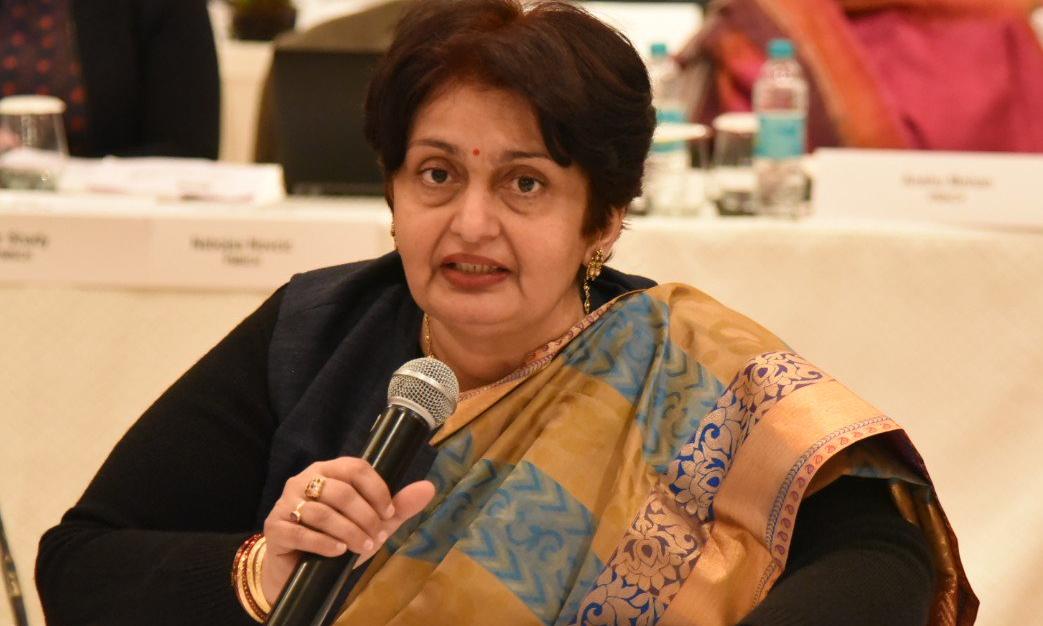Dilip Cherian | Sudan’s challenge is to clean and reform UPSC

Preety Sudan has her work cut out for her as she steps into the role of UPSC chairperson. Taking over from Dr Manoj Soni, who resigned unexpectedly amidst a storm of controversy, she faces the daunting task of restoring the commission’s credibility. Mr Soni resigned for personal reasons and left five years before his term was scheduled to end. His departure coincided with a scandal involving trainee IAS officer Puja Khedkar, who is accused of fraudulently taking the civil services examination 12 times, well beyond the permitted attempts. This scandal has severely tarnished the UPSC’s image, and Sudan’s leadership will be crucial in navigating the aftermath.
A retired 1983-batch IAS officer from the Andhra Pradesh cadre, Ms Sudan brings a wealth of experience. Having served as the Union health secretary during the Covid-19 pandemic, she was instrumental in shaping the country’s response to one of the most significant health crises in recent history. Appointed as a member of the UPSC in 2022, Ms Sudan now steps into the chairperson’s role with the formidable challenge of steering the commission towards greater transparency and much-needed reforms.
Her tenure, which will last until March 2025, is relatively short, but the expectations are high. The UPSC, once a symbol of integrity in Indian bureaucracy, now finds itself in desperate need of a larger cleansing. Ms Sudan’s experience, particularly her strategic acumen displayed during the pandemic, will be essential in restoring trust and ensuring that the UPSC emerges stronger from this crisis.
Surprise shake-up at BSF
In a move that took many by surprise, the ministry of home affairs suddenly removed BSF director-general Nitin Agrawal and his deputy, special DG (west) Y.B. Khurania, sending them back to their state cadres without warning. Agrawal, from the 1989 Kerala cadre, had only been in the top job since last June, while Mr Khurania, a 1990 Odisha cadre officer, was in charge of the BSF’s operations along the Pakistan border.
This abrupt move has set tongues wagging, with many wondering what’s really behind it. The timing is especially curious — Mr Agrawal was still two years away from retirement, so the decision has left many puzzled. Some believe it’s a response to the recent spike in militant activity in Jammu and Kashmir, a region where the BSF is on the frontlines.
There were already whispers that Mr Khurania might be heading back to take on the role of director general of police (DGP) in his home state, but the sudden removal of both officers at the same time has fuelled speculation that this could be about more than just routine transfers. With rising concerns over border security, especially with increasing infiltration incidents, some think this shake-up could be a direct response to those challenges.
The government hasn’t said much about the reasons behind the move, but it’s evident that the situation is far from straightforward. As events unfold, we’ll likely get a better sense of what prompted this unexpected change in leadership at the BSF.
Modi confidant becomes Puducherry L-G
President Droupadi Murmu recently appointed new governors for several states, including Maharashtra, Manipur, Meghalaya, Telangana, Rajasthan, Sikkim, Jharkhand, and Chhattisgarh. The lieutenant governors of Puducherry and Chandigarh were also changed. Among these appointments, the most intriguing is that of K. Kailashnathan, one of Gujarat’s most influential bureaucrats, who has been named lieutenant governor of Puducherry.
Kailashnathan, widely known as KK, has been a pivotal figure in the administrative corridors since his retirement as additional chief secretary of Gujarat in 2013. His appointment now as the lieutenant governor of Puducherry underscores his continuing importance to Prime Minister Narendra Modi.
KK’s administrative journey is marked by his seamless transition from retirement to becoming the chief principal secretary to the chief minister of Gujarat, a role specifically created for him. During his tenure, he served under four chief ministers — Narendra Modi, Anandiben Patel, Vijay Rupani, and Bhupendra Patel. Despite this, KK has consistently been seen as a trusted confidant of Mr Modi, effectively acting as a vital link between Ahmedabad and New Delhi.
KK’s influence in Gujarat’s administrative landscape has been enduring, and his latest appointment merely highlights the trust and reliance that the central leadership continues to place in him.

